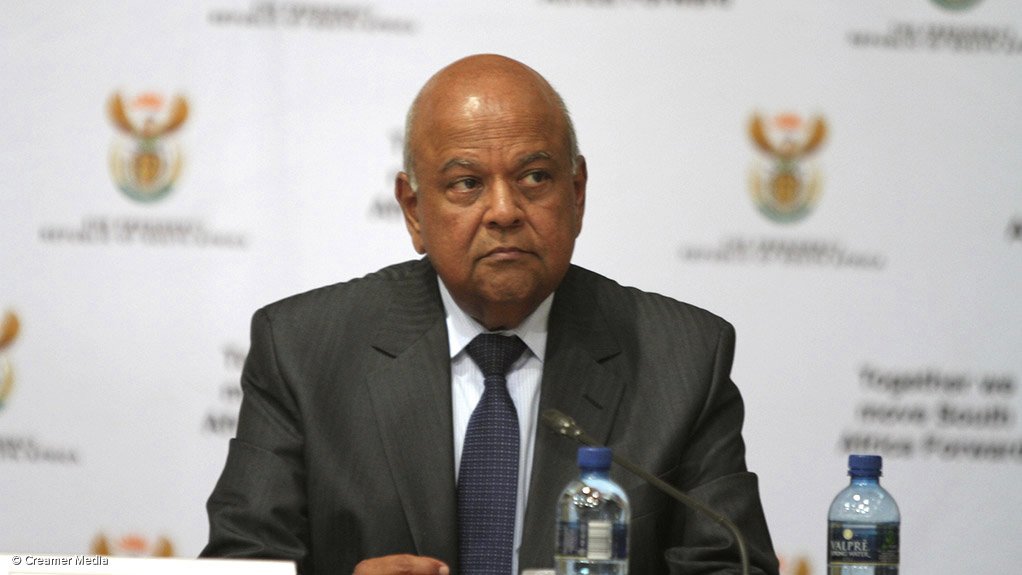/ MEDIA STATEMENT / The content on this page is not written by Polity.org.za, but is supplied by third parties. This content does not constitute news reporting by Polity.org.za.
Finance Minister Pravin Gordhan, senior officials from the National Treasury and senior leaders of South African business held a series of scheduled meetings with rating agencies and investors in London on 27 March as part of official trips planned for the week. The trips are scheduled National Treasury’s annual domestic and international investor engagement roadshows broadly timed to follow immediately after the tabling of the Budget in February and the publication of the Medium Term Budget Policy Statement in October respectively.
The roadshow was scheduled to take place in two phases. The first phase was set to take place in London on 27 and 28 March. Minister Pravin Gordhan was leading the delegation, which also comprised of Mr Jabu Mabuza (of Business Leadership South Africa and Business Unity South Africa), Ms Nicky Newton-King (of the JSE). Mr George Sebulela from the Black Business Council could not make it due to logistical challenges.
As in the past international roadshow held late last year, leaders of the three labour union federations – COSATU, NACTU and FEDUSA - were also invited to attend. Due to logistical reasons, they did not make the first day of the meetings, but were told not to travel because the trip was subsequently cancelled. The Reserve Bank delegation which also traditionally joins the roadshows could not be part of it because of the planned Monetary Policy Committee meeting.
The second leg of the roadshow was intended to be in the United States, to be led by the Deputy Minister Mcebisi Jonas. However, this trip was subsequently cancelled before he travelled last night.
In London, Minister Gordhan and his delegation had five face-to-face meetings with sixty representatives from the following fund managers: BlackRock, T.Rowe, Aberdeen, Eaton Vance, Vanguard, Investec, Metlife and Apollona, and 28 investors in a combined lunch. They also met two rating agencies (Fitch and Moody’s), as well as a teleconference with Standard & Poor.
The meetings are part of the normal course of business of the Treasury’s effort to keep both rating agencies and investors informed about fiscal and monetary policy developments, more specifically and about topical contemporary policy issues in SA.
The questions from both investors and rating agencies revolved around:
1. Economic growth: Investors enquiring about the achievability or otherwise of growth forecasts and Government, business and other partners’ efforts towards achieving faster and more inclusive growth.
2. Fiscal Policy: While broadly commending the budget, investors wanted to know whether there was still scope to adjust both revenue and expenditure sides of the budget in the event that the fiscal targets are likely to be missed materially.
3. Politics: Investors expressed concerns about the political environment and the risk that it could divert attention from setting policies aimed at accelerating growth and creating more work opportunities. They were also curious about the processes leading to the policy conference of the governing party and the electoral conference in December.
This information is crucial for investors to commit the funds under their management by buying South African government bonds (by lending to the South African government) and form their opinions about SA’s credit worthiness and thus to pronounce on the country’s rating. The ratings in turn determine the cost at which SA will borrow the R730 billion it will need to meet its borrowing requirement for the next three years.
Government on a weekly basis needs to borrow more than R13 billion in the domestic market. Of government’s total borrowing requirement, USD6 billion needs to be raised in the international market over the next 3 years to partly meet government’s foreign commitments. This is money that will contribute towards the building of public infrastructure – roads, schools, health facilities, etc - to deliver better public services to the 55 million South Africans.
One of the clear benefits of the roadshows is that, SA is one of very few countries that do not have to meet investors before issuing an international bond. In other words, the South African government is able to raise amounts as high as USD3 billion within a matter of 3-5 hours. This has been the case for the last 5 year now.
The meetings commenced at 10am and ended at 18h00 before the team headed for the airport to catch their flight back home.
Issued by National Treasury
EMAIL THIS ARTICLE SAVE THIS ARTICLE ARTICLE ENQUIRY
To subscribe email subscriptions@creamermedia.co.za or click here
To advertise email advertising@creamermedia.co.za or click here











